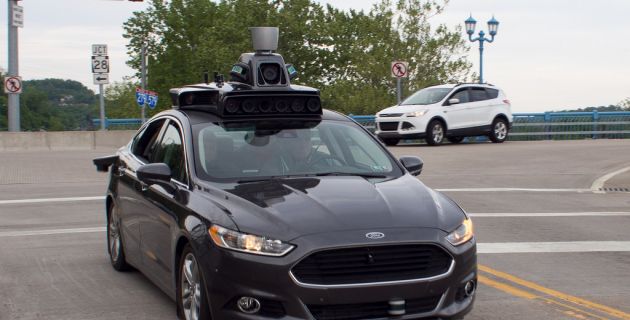Nearly two months after one of their self-driving vehicles struck and killed an Arizona woman, Uber officials are eyeing a return to the road to continue testing their autonomous fleet.
Uber’s braintrust suspended all testing in the wake of the deadly March 18 incident. They will likely resume experiments “within the next few months,” CEO Dara Khosrowshahi recently announced. In the meantime, Uber officials remain focused on reevaluating safety protocol and are conducting a “top to bottom” review of their current practices, Khosrowshahi said.
That evaluation may have already led company engineers to some idea of what went wrong during the accident. Recent reports point to the vehicle’s own software. It is programmed to retain some amount of discretion when reacting to objects in the road.
The car’s suite of sensors, radar, and LiDAR were all in working order, allowing the auto to detect pedestrian Elaine Herzberg, 49, as she crossed the street. However, it “chose” not to respond, the recent reports allege. Such a program would otherwise allow a car to avoid unnecessary reactions to “false positives.” These include items like plastic bags or other inanimate objects moving within its line of sight.
Fine-tuning such technology will likely be on top of Uber’s to-do list when the company resumes its self-driving tests. The list of possible venues where it can do so, though, is running low.
In the wake of the accident, Arizona Governor Doug Ducey permanently barred the rideshare giant from utilizing his state’s roads to test the vehicles. And Uber declined to renew its testing permit in California, which lapsed just days after the deadly incident.
That leaves Pennsylvania, where Uber first began aggressively testing its driverless technology in 2016, after wooing a sizable number of professors away from the famed Robotics Institute at Pittsburgh-based Carnegie Mellon University.
Somewhat ironically, the tests marked the first in the nation to involve real-life passengers, with Uber considered a self-driving trailblazer at the time.
Still, the company has a chance yet to reclaim that pioneer status. Khosrowshahi recently confirmed its work on flying robo-taxis, saying Uber hopes to introduce the concept commercially by 2023.
